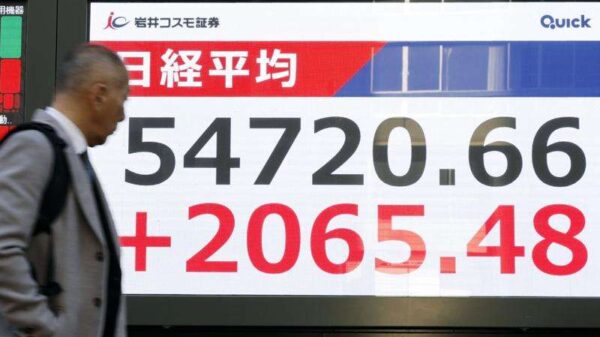URGENT UPDATE: More than 820,000 people in the greater Washington, D.C. area face food insecurity, according to a newly released report from the Capital Area Food Bank. This troubling statistic reflects a significant increase of 75,000 individuals since 2022, as the economic fallout from federal funding cuts deepens.
The report highlights the alarming trends affecting food security in the region, attributing the crisis to policies enacted by the Trump Administration. “Food insecurity is deepening in its severity,” states LaMonika Jones, director of state initiatives at the Food Research and Action Center. “We are back just about to where we were during the pandemic.”
Economic conditions have worsened sharply as unemployment in the D.C. area has climbed to 6%, higher than the national average of 4.2%. Federal employment has plummeted by 97,000 jobs since January 2023, exacerbating food insecurity among families reliant on government positions. Alarmingly, 41% of households affected by job losses reported being food insecure, with many experiencing “very low food security.”
The report emphasizes a connection between rising food insecurity and the reduction of social programs. Funding cuts from the Supplemental Nutrition Assistance Program (SNAP) are projected to slash over $180 billion through 2035, impacting nearly 41.7 million Americans who depend on monthly assistance.
Adding to the urgency, the U.S. Department of Agriculture (USDA) announced the termination of its annual food security survey, a critical tool for tracking food access across the nation. Officials have labeled the survey as “politicized,” raising concerns about the future of food security data collection.
Nationwide, factors such as high inflation and stagnant wages further compound the struggle for American families. Goods and services are now approximately 20% more expensive than five years ago, while household incomes fail to match this rise. In the D.C. area specifically, 40% of adults report a decline in household finances, with many households earning an average of $98,000 affected by very low food security.
Jones stresses the urgent need to address these systemic issues: “We must support all of the social determinants of health that allow a person to take care of themselves,” she urges, calling for comprehensive solutions that encompass economic stability, affordable health care, and transportation access.
As conditions worsen and food insecurity continues to escalate, the need for immediate action has never been clearer. The community is urged to engage in discussions and advocate for policies that support families in crisis.
Stay tuned for further developments as this situation unfolds, and consider sharing this vital information to raise awareness about the urgent food insecurity crisis facing the D.C. area.








































































